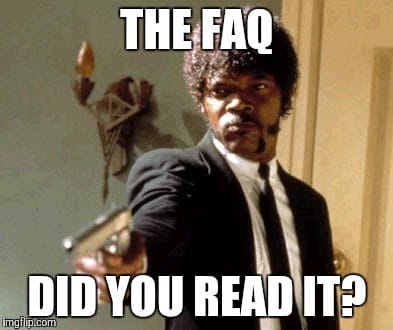
Decentralized Autonomous Organisations
Decentralized = Global, uncensorable, Distributed Governance
Autonomous = Self-governing.
Organization = Coordination & collaboration around shared objectives.
“Decentralized autonomous organizations” or DAOs represent exactly what they are called; they are:
decentralized so, the rules cannot be changed by a single individual or centralized party;
autonomous, so they operate based on logic written into a smart contract, without human. intervention. They will continue to function for as long as the underlying blockchain continues to function;
organizations or entities that coordinate activity among a distributed community of stakeholders — for example, developers and users on a given blockchain network.
DAOs are examples of what is known as “on-chain governance“. In traditional corporate governance, for example, companies have bylaws that dictate certain policies, such as how a board is elected. A DAO extends this concept into the digital world by encoding bylaws into smart contracts.
DAO - Decentralised Autonomous Organisations.
Common good has an economic definition - basically rival and non excludable. In our case, a community's projects are rivalrous (if one team executes a project/ job, others won't be able to) and non-excludable cos entry to the community (DAO) is either through money/labor.Hence the term DAOcommons!
Skilling and Demand generation are the two broad revenue streams.
Skilling - Courses, Workshops, Fellowships etc
DemandGen - % of the transaction fee for the Jobs and Projects
You can choose to tokengate / charge a subscription fee for your community as well.
NO.
If you're a web2 services/product company you're typically missing out on one of the revenue streams (skilling)
If you're a web2 "edtech" company, you're missing out on the revenue stream of gigs and projects
If you're a web2 community, you are mostly missing out on both the revenue streams
The easiest way to explain it is by saying that:
Blockchain is a database that is not managed by a single company.
Instead, it's managed by multiple people, making it a peer-to-peer database and thereby, making it decentralized.
To build trust.
Let's see the following eg.:
Imagine some friend of yours, traveling around the world, asks you $10.
You say yes and ...
The best Use Case
You jump to your Bank's account, and make the transfer.
You text your friend saying that you wired him the money and that he'll get it soon.
But, have you seen what happened behind the scenes?
Behind the scenes
What happened was that you relied on your bank as the mediator of that transaction.
The moment you click "OK", the Bank registers the Amount and Date and places it in their internal register stating:
"You transferred X amount to Y person the day Z"
. The problem
Wiring money from Person X to Person Y has a cost.
What does this cost cover?
The mediator's infrastructure costs.
Because: anytime you wire money to someone, the Bank has to keep paying for their servers power, human power, money costs, etc
Wait a sec...⬇️
Understanding the problem
"But, if I handle $5 to my friend, it costs me nothing.
Why can't I replicate the same online?
Why can't I send it directly to my friend?"
Because: most of the time we don't wire money just to our friends.
We buy things too from random people
Trust issues
And that's why you need Banks and other middle entities: to build trust in every transaction we make and mediate each one of those transactions.
Whatever if it is to buy stuff from the internet or make life insurance.
And this is where Blockchain gets in ..The solution
Blockchain was built to serve as a mediator in every transaction we make: to build trust.
And how?
By keeping a record of every transaction organized in "blocks" and all the "blocks" in a "chain".
But is it just about wiring money?
Not really
New Use Cases
So what can we do with Blockchain other than wiring money?
Some new use cases are:
• NFT marketplaces
• Personal identity security
• Secure sharing of medical data
• Supply chain and logistics monitoring
• Anti-money laundering tracking system
As mentioned before, the Blockchain isn't a server running by one single company, instead, it runs on multiple PCs of multiple people.
People spread across the world.
It keeps a record of every transaction, making it possible to track every transaction
And how do we know every transaction is real?
By keeping every "block" in a "chain" of blocks that are processed and verified.
But who runs the verification? How can we trust it?
And that, that's the topic for our next thread..